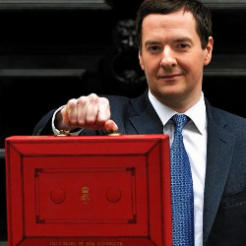Around 1,200 UK charities are expected to be affected by a new apprenticeship levy, collectively costing about £70m, according to early estimates from NCVO.
NCVO also said that charities would be able to benefit from the scheme, and individual charities could get out more than they contributed.
The government announced the plans to introduce an apprenticeship levy from April 2017 in the spending review and autumn statement today. The government estimates that this will raise £3bn by 2019/20.
Employers with a wage bill of more than £3m will have to pay the levy of 0.5 per cent through Pay As You Earn. And the government will use the money raised to fund apprenticeships. The levy applies across England, Wales, Scotland and Northern Ireland.
Today’s spending review document said: “Employers in England who pay the levy and are committed to apprenticeship training will be able to get out more than they pay into the levy.”
NCVO estimates that around 1,200 charities in the UK will be affected at a cost of £70m.
Sir Stuart Etherington, chief executive of NCVO, said: “Young people have been hard hit in recent years and I believe it’s important that the charity sector plays its part in creating opportunities, but it’s also important that there is meaningful consultation on the details. We’ll be talking to the new Institute for Apprenticeships to make sure these schemes work well for apprentices and employers in the sector.”
John Hemming, chair of Charity Tax Group, said: “While most charity employers will not be caught by the new apprenticeships levy, some larger charities will be and the additional costs will place an additional strain on already stretched budgets.”
Other measures
Other measures in today’s announcement include the announcement of the start date for the review of the Gift Aid Small Donations Scheme, a right-to-buy housing association pilot, delayed business rates review, and a partial tax exemption for charities.
Gift Aid Small Donation Scheme
The government will call for evidence for its review of the Gift Aid Small Donations Scheme in December as well as announcing changes to local authority funding and social care arrangements, which will impact on charities.
Sector bodies have long been calling for a review into the GASDS, which allows charities to claim a gift aid-like relief on donations, even if they are not accompanied by the proper paperwork.
They have previously criticised it for being too complex for the small charities it intended to help.
In the year to March 2015 £23m was claimed through the scheme. The government had expected the scheme to be raising £123m for the sector by that point.
Partial exemption to close company loan rules
The government has also announced a partial exemption for charities on close company loan rules – which will apply from today.
Following the Finance Act in 2013 a loan by a subsidiary company of a charitable trust to the trustees of the charitable trust - a common practice where the subsidiary has no need for some of its capital - would have been liable for tax. The legislation was introduced to close a tax loophole and the impact on charities was unintentional.
The government will now legislate so that no tax is charged when a loan is made by close companies to charity trustees for charitable purposes.
Hemming said: “The partial exemption for charities from the close company loans to participators rules, on which we lobbied the Treasury, is very welcome – it was a clear example of charities being caught inadvertently. However, it is disappointing that it only applies from today and not on loans already in place.”
Housing associations to pilot right-to-buy
Osborne announced that five housing associations will begin a pilot into right-to-buy from midnight.
The move was announced in the Conservative Manifesto. After protests from the housing association sector about being forced to sell charitable assets, the government and the National Housing Federation and Department for Local Government and Communities agreed to implement the initiative on a voluntary basis, and with compensation on a like-for-like basis to enable housing stock to be replenished.
David Orr, chief executive at the National Housing Federation said: "Like the Chancellor, housing associations want to build even more new homes – that are affordable to rent and affordable to buy.
"This historic announcement provides the conditions for us to deliver thousands more homes for people at every level of the housing market.
"Shared ownership is a housing association success story - with over 275,000 properties already delivered."
Business rates review delayed
The Chancellor also delayed the report of the review into business rates until the Budget 2016. He announced plans to scrap uniform business rates and fully devolve business rate retention to local authorities.
Charities were concerned about the impact on business rate relief, which is worth more than £1.5bn a year to the sector in England alone.
Hemming said: “We note that the outcome of the business rates review has been delayed until next year although we are concerned by statements confirming that business rates retention will be devolved fully to local authorities and that the uniform business rate will be abolished.
“We continue to be worried that mandatory rate relief that is so vital to charities will suffer the same fate. A clear statement confirming that charity business rates relief will not be affected by this policy would help to allay concerns in the sector that this policy announcement could threaten this invaluable relief.”









